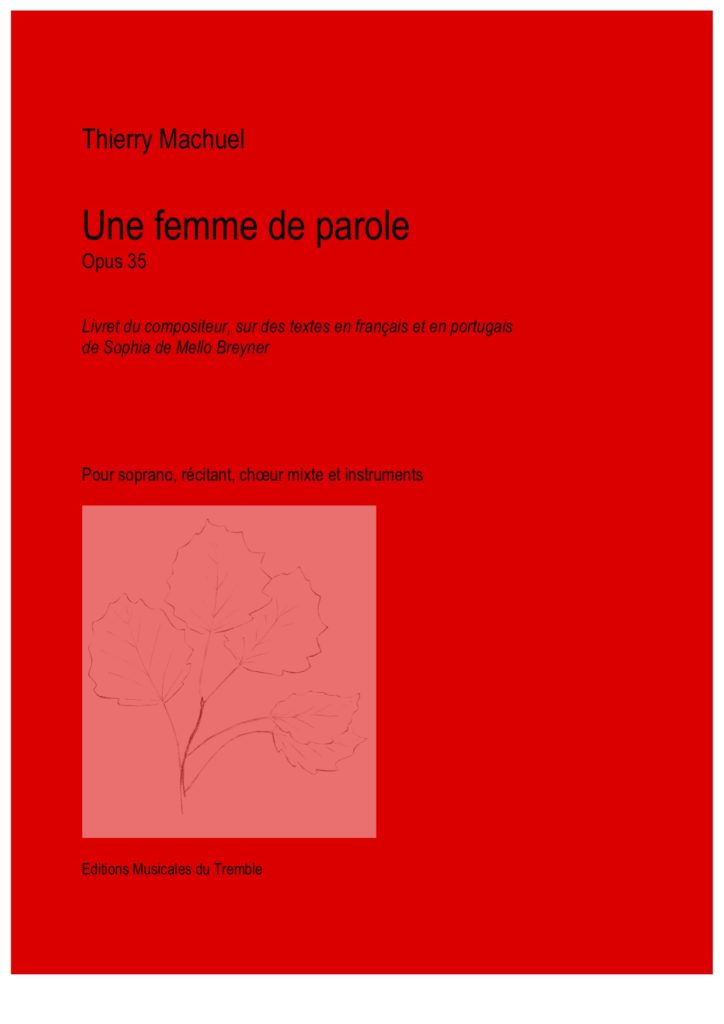Sophia de Mello Breyner, a great figure of Portuguese poetry who died in 2004, built up an exceptionally rich literary body of work, which was in turn passionate, serene, vehement or nostalgic. In 4 acts, the oratorio reveals to us the journey of a committed woman – once a fighter, always luminous – each part corresponding to a moment in her history: political oppression, love, the liberation of the country, and finally, wisdom and death. The choral writing uses vocal games on the theme of resistance (resistance to a pitch, a unison, a chord, a volume of sound…) by means of the division of the choir into four groups, opposed two by two.
The current version of the work, in Portuguese and French, should be reworked to reach four languages, with Spanish and Basque. Four vocal groups spatialised at the four cardinal points around the audience, and a soprano, moving constantly, representing the exile of the committed artist.
A rewriting of the work is underway.
In the audio extract below (book-CD ‘Outre-Chœur ..’, ensemble Territoires du souffle, éditions B.Doucey, September 2016), only the song Porque can be heard, in a version with the soprano Caroline Chassany and a small group of singers, and not two choirs as originally. The dialogue between one language and its translation into another can be heard clearly.
Difficulty rating: easy to moderate
Sophia de Mello Breyner
French, Portuguese
(in a later version, some texts will be translated into Spanish or Basque)
There are two versions:
1. Solo soprano, 2 reciters (male and female), four mixed choirs and instrumental ensemble (clarinet, accordion and percussion)
2. Solo soprano, 2 reciters (male and female), four mixed choirs and instrumental ensemble (clarinet, guitar, harp, harpsichord, accordion, cello and percussion)
A rewriting of the first orchestration, taking into account the richness of the second, is currently underway.
Duration: 75 mn approx.
Libretto in 4 acts :
Act 1 : Voici le temps, Patria, Exilio, Data, Da transparencia, Ne cherche pas.
Interlude : poésie d’hiver
Acte : Le premier homme, Nao te chamo, Poema de amor, Porque, Terror de te amar, Le destin, A solidao, Meditaçao.
Interlude 2 : Lettre aux amis morts.
Act 3 : Ici dehors, Santa Clara de Assis, 25 de abril, Revoluçao, Révolution-découverte.
Interlude 3 : Le chemin du matin.
Act 4 : Puissé-je, Malgré les ruines, Nao se perdeu, Devant la lumière, Dieu écrit droit, Acaia, Depuis longtemps.
Acte 4 : Puissé-je, Malgré les ruines, Nao se perdeu, Devant la lumière, Dieu écrit droit, Acaia, Depuis longtemps.

